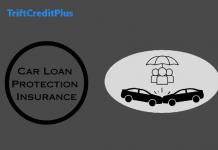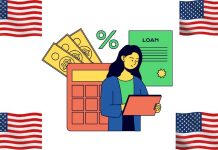For many borrowers who are drowning in student loan debt, student loan forgiveness has emerged as an opportunity for hope. Thus, more people are looking for relief from the weight of student loan debt as a result of growing educational costs and slowing down incomes in some areas. Well, applying for a student is not that hard. See how you can apply your student loan forgiveness.

How to Apply for Student Loan Forgiveness
Applying for student loan forgiveness typically depends on the type of forgiveness program you’re eligible for.
Here are some general steps you can take:
- Understand Eligibility Requirements: This could include working in a certain profession or for a specific type of employer for a designated period.
- Gather Documentation: Collect any necessary documentation to prove your eligibility. This might include employment records, proof of payments, or certification forms.
- Complete the Application: Fill out the appropriate application form for the forgiveness program you’re applying to. Each program will have its application process. You can usually find these forms on the website of the loan servicer or the Department of Education.
- Submit the Application: Follow the instructions for submitting your application. This might involve mailing the form or submitting it online through a portal.
- Do a Follow-Up: Check up on your application often after submission to ensure it is being processed. Furthermore, you must be prepared to provide any additional details or supporting documentation that may be required.
- Stay Informed: Keep yourself updated on the status of your application and any changes to the forgiveness program’s requirements or processes.
- Continue Making Payments (If required): While your application is being processed, continue making any required loan payments. Some forgiveness programs have specific requirements regarding payment during the application process.
- Await Notification: Once your application has been reviewed, you’ll receive notification of the decision. If approved, your loan forgiveness should be processed accordingly.
Keep in mind that the precise prerequisites and protocols for the forgiveness program you’re considering may differ, so be sure to double-check them.
Additionally, it’s always a good idea to reach out to your loan servicer or a financial aid advisor for guidance throughout the process.
Where Can You Apply for Student Loan Forgiveness
There are various avenues available for student loan forgiveness, from programs tailored to specific professions to broader initiatives aimed at easing the burden of student debt for qualifying individuals.
Here are some of the various avenues available for student loan forgiveness:
- Public Service Loan Forgiveness (PSLF): This program forgives the remaining balance on Direct Loans after borrowers have made 120 qualifying monthly payments while working full-time for a qualifying employer, such as government organizations or non-profit organizations.
- Teacher Loan Forgiveness: Designed for teachers working in low-income schools or educational service agencies, this program forgives up to $17,500 of Direct or FFEL loans after five consecutive years of teaching.
- Income-Driven Repayment (IDR) Plan Forgiveness: Borrowers on income-driven repayment plans, such as Income-Based Repayment (IBR), Pay as You Earn (PAYE), or Revised Pay as You Earn (REPAYE), may be eligible for forgiveness of the remaining loan balance after making payments for 20 or 25 years, depending on the plan.
- Perkins Loan Cancellation: Teachers, nurses, law enforcement officers, and other professionals may qualify for cancellation of Perkins Loans based on their profession and length of service.
- Loan Forgiveness for Medical Professionals: Programs like the National Health Service Corps (NHSC) and the Nurse Corps Loan Repayment Program offer loan repayment assistance to healthcare professionals who work in underserved areas.
- Military Service Loan Forgiveness: Some branches of the military offer loan forgiveness programs for service members, such as the Army Student Loan Repayment Program and the Navy Loan Repayment Program.
- State-Sponsored Loan Forgiveness Programs: Many states offer their loan forgiveness programs for various professions, such as teaching, healthcare, and legal services.
Understanding the eligibility criteria and application processes for each of these avenues can help borrowers explore options for reducing or eliminating their student loan debt.
Final Words
Whether you are a public servant, a teacher, a healthcare professional, or someone struggling under the weight of student loans, this post offers essential information to navigate the student loan forgiveness landscape and potentially find the financial relief you seek.
Frequently Asked Questions
Should I pay Off my student loans or wait for forgiveness?
It’s a good idea to keep up your normal student loan payments and perhaps hold off to see whether this new program will eventually result in the cancellation of some of your debt. This is a great excuse to prioritize other investments or payments that are more important than paying off your student loans quickly.
What is the duration of the student loan forgiveness process?
Student loan forgiveness processing timeframes may vary depending on the forgiveness program, the completeness of your application, and other factors.
Usually, it takes a few months to a year or longer to authorize and process the forgiveness.
Can private student loans be forgiven?
Forgiveness rarely applies to private student debts, unlike federal student loans. Not all lenders cancel student loans in the event of death or permanent disability. Furthermore, if your cosigner passes away, you will most likely still be responsible for paying back your private student loan.
How do I know if my student loans will be forgiven?
When your debts are paid off, they ought to be automatically forgiven. Speak with your loan servicer about any necessary actions.
More Related Content:
How to Consolidate Student Loans
First Bank Loans and Overdrafts
Which types of loans are available to undergraduate students?
When do Students Have to Start Paying Back Loans?



